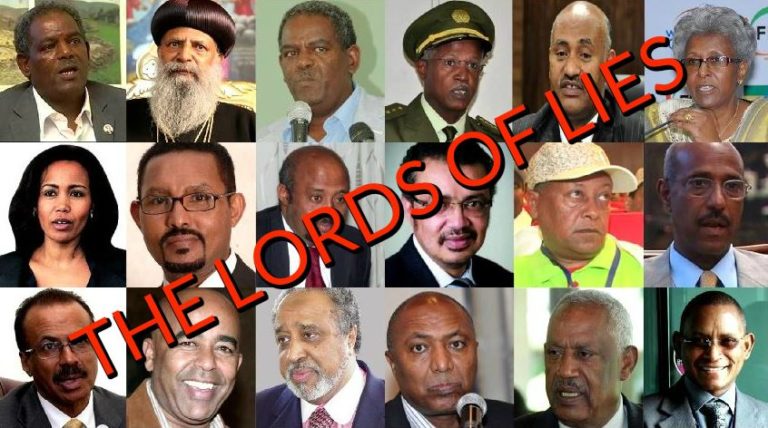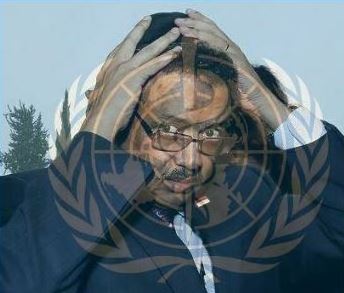Failed State, Genocidal Regime, Thugs in the Hood and What to do About Them
Editorial
Ethiomedia | March 10, 2008
http://www.ethiomedia.com/abai/ethiomedia_031008.html
A few days ago, Senator Russ Feingold, Chairman, Senate Subcommittee on Africa, gave a speech in the U.S. Senate saying the Horn of Africa is on the horns of a dilemma. He explained the Horn is “one of the roughest neighborhoods in the world” complete with a failed state, a genocidal regime, an authoritarian state, and a country in dire straits. But he saved his scalding criticism for the “thugs” that are running berserk in the neighborhood, to borrow a word used by Congressman Chris Smith in branding the regime leaders in Addis Ababa.
Senator Feingold’s speech is infused with deep concern about “poor governance” and “human rights” violations in Ethiopia. He is dismayed by the “Bush Administration’s approach to strengthening and building bilateral ties with Ethiopia [which] has been short-sighted and narrow”. He wants U.S. policy in Ethiopia to be guided by a clear understanding of “what is really occurring in Ethiopia. Rather than place our support in one man, we must invest in Ethiopia’s institutions and its people to create a stable, sustainable political system.”
Senator Feingold is absolutely correct in identifying the quintessential question in U.S. policy in Ethiopia: To support one man, or not to support one man but to stand with 80 million Ethiopians and help them build democratic institutions and good governance. A hearing is scheduled for March 11, 2005 to begin to sort out this question, and others affecting the Horn.
We agree with Senator Feingold’s analysis of the problem. We believe the answer lies in U.S. insistence on the institutionalization of the rule of law in Ethiopia as the bedrock principle of democratic governance. As Senator Feingold has alluded, Ethiopia today swelters under the rule of one man, while the rule of law is flagrantly disregarded. The Bush Administration’s preoccupation with the war on terror in the Horn has unquestionably contributed to the growth of a culture of lawless arrogance and contempt for the rule of law and democratic principles by the regime in Addis Ababa. But it is not too late for the U.S. to do the right thing. So we rephrase the question for U.S. policy in Ethiopia: How can the U.S. help 80 million Ethiopians build a democratic society that is founded on the rule of law? The U.S. can jump start the democratization process in Ethiopia by insisting on the…
Immediate Release All Political Prisoners
Release of political prisoners does not mean gamesmanship with the lives of innocent political prisoners. Forcing unjustly imprisoned individuals to sign meaningless pardon papers admitting wrongdoing as a condition of their release is extortion, and does not amount to a real program of release of political prisoners. Playing revolving door politics with political prisoners — that is releasing 72 prisoners today, 38 next month, while imprisoning hundreds of new ones every week, and keeping thousands of others in detention without due process of law — is a cruel joke that is not funny. All political prisoners must be released immediately; and there must be a full accounting of all political prisoners throughout the country as part of a comprehensive release program. The regime-established Inquiry Commission documented thirty thousand political prisoners in just a few months. There is no reason why another commission can not finish the job in short order.
Prosecution of Human Rights Violators
There are numerous individuals and officials responsible for human rights violations in Ethiopia. The Inquiry Commission has documented the cold blooded massacre of 191 individuals in just two sets of incidents in 2005; and there are thousands of other victims of torture, illegal detentions and other forms of persecution. The killers of the 191 innocent protesters are well known and must be brought to justice immediately. The ruling regime must not be allowed to coddle and provide a safe haven to security and other officials suspected of committing atrocities and massive human rights violations. Those who have committed torture should be prosecuted without delay under the United Nations Convention Against Torture.
Establishment of Independent Electoral Institutions that Ensure Free Elections
There can be no democratic governance and rule of law in Ethiopia without institutional mechanisms that ensure free and fair elections. Elections in Ethiopia today are elaborate shell games. In this game, the regime rolls out all the trappings of a democratic electoral process for pubic viewing — election laws, voter registration drives, candidate recruitment, party registration, media blitzes, etc., — and mostly to impress international donors. Just like the thimblerigger (shell man) in the shell game, no player in the electoral game can win unless the shell man wants him to win. Most of the people standing around the swindler are his own con men whose purpose is to create distractions for the shell man. The 2005 elections have proven to be a shell game; and post-election events have shown that the regime can not play by fair electoral rules, and will use whatever is necessary – trickery, fraud, detentions of opposition leaders, violence and intimidation — to maintain its chokehold on power.
The U.S. must insist on electoral transparency and integrity in the electoral system. This requires establishment of an independent election management and oversight body that includes members from all political parties, and staffed by professional civil servants. Another equally important institutional requirement for fair and free elections is the active engagement of civil society organizations in voter education, information, registration and training. Current efforts to over-regulate and criminalize the essential functions of civil society organizations will be a grave set back to any chances of free and fair elections and real democratization in Ethiopia.
Guarantees of Judicial Independence
An independent Ethiopian judiciary is essential to ensure fairness and equal justice for all citizens. As the 2-year “prosecution” of the opposition leaders has shown, judges and courts should not be used as tools for the persecution of political opponents and dissidents. The U.S. is in a position to demand and assist in establishing a judicial system that has institutional and decisional independence. The courts should perform their judicial duties independent of the manipulative interference of regime officials, and without fearing penalty in their careers for the decisions they make in discharging their duties. They should be allowed to decide cases and controversies brought before them solely based on the law and facts.
Guarantees for Censorship-free and Independent Press/Media Institutions
A free press is vital in sustaining and building a robust democracy; and without it good governance, accountability and democratic development will remain elusive in Ethiopia. In its 2008 report, the Committee to Protect Journalists stated: “Yet the chilling effect of a brutal 2005 media crackdown that led to 15 arrests and numerous newspaper closings hung over Ethiopia’s beleaguered private press in 2007.” The CPJ concluded that “harassment and imprisonment have led many of Ethiopia’s top journalists to go into exile”, and Ethiopia is registered as the second worst persecutor of journalists next to Zimbabwe. Just Last month, editor Ezedin Mohamed and publisher Maria Kadim of Al Kidus and editor Ibrahim Mohamed of Selefia were arrested and detained on criminal libel charges.
The type of vicious persecution unleashed against independent Ethiopian journalists over the years suggests that regime leaders believe they have an absolute right to operate government in total secrecy. They seem to be conveniently oblivious of a basic tenet of democracy, namely that citizens have an unquestionable right to know how their government is run. Citizens are entitled to know whether their elected representatives and public officials are performing their duties properly and their tax dollars are spent without official fraud, waste and abuse. The free press has a right to expose the maladministration of justice, and bring to the public’s attention inefficient and ineffective workings of a government bodies, as well as criminal misconduct and official corruption and malfeasance.
The regime in Addis Ababa is so obsessed with secrecy and keeping the truth away from the people that it is now trying to jam VOA and other international broadcasts to make sure the majority of the people are completely shut off from news and information of political consequence about Ethiopia, or the world. Senator Feingold was so appalled by this effort that he called for universal condemnation of the regime’s practice: “Recent reports that the Ethiopian government is jamming our Voice of America radio broadcasts should be condemned in no uncertain terms, not shrugged off.”
Depoliticization of the Military
The U.S. has provided hundreds of millions of dollars in military aid to Ethiopia. But the U.S. has never seriously questioned the use of that aid in suppressing legitimate dissent and opposition. Senator Feingold did not mince words in describing the regime’s recent military crackdown in the Ogaden and misuse of U.S. military aid: “This tendency to portray political dissent as extremist uprisings has been repeated more recently with regards to what is being characterized by some as a brutal counterinsurgency operation led by Ethiopia’s military in the Ogaden, a long-neglected region that borders Somalia.” The U.S. government should insist that none of its military aid is used to “brutally” suppress peaceful opposition and dissent in the country. In fact, it should strictly apply the “Leahy Law” (prohibits U.S. military assistance to foreign military units that violate human rights) in its military aid policy, and ensure the police and armed forces in Ethiopia are not used as tools of political repression and persecution.
We believe the March 11 Senate hearings will be a precursor to final debate and passage of H.R. 2003. After all, the U.S. could help Ethiopia make giant strides in the achievement of democracy, freedom, human rights and the rule of law by merely enacting H.R. 2003. We urge all Ethiopians who can attend the Senate hearings to do so!




